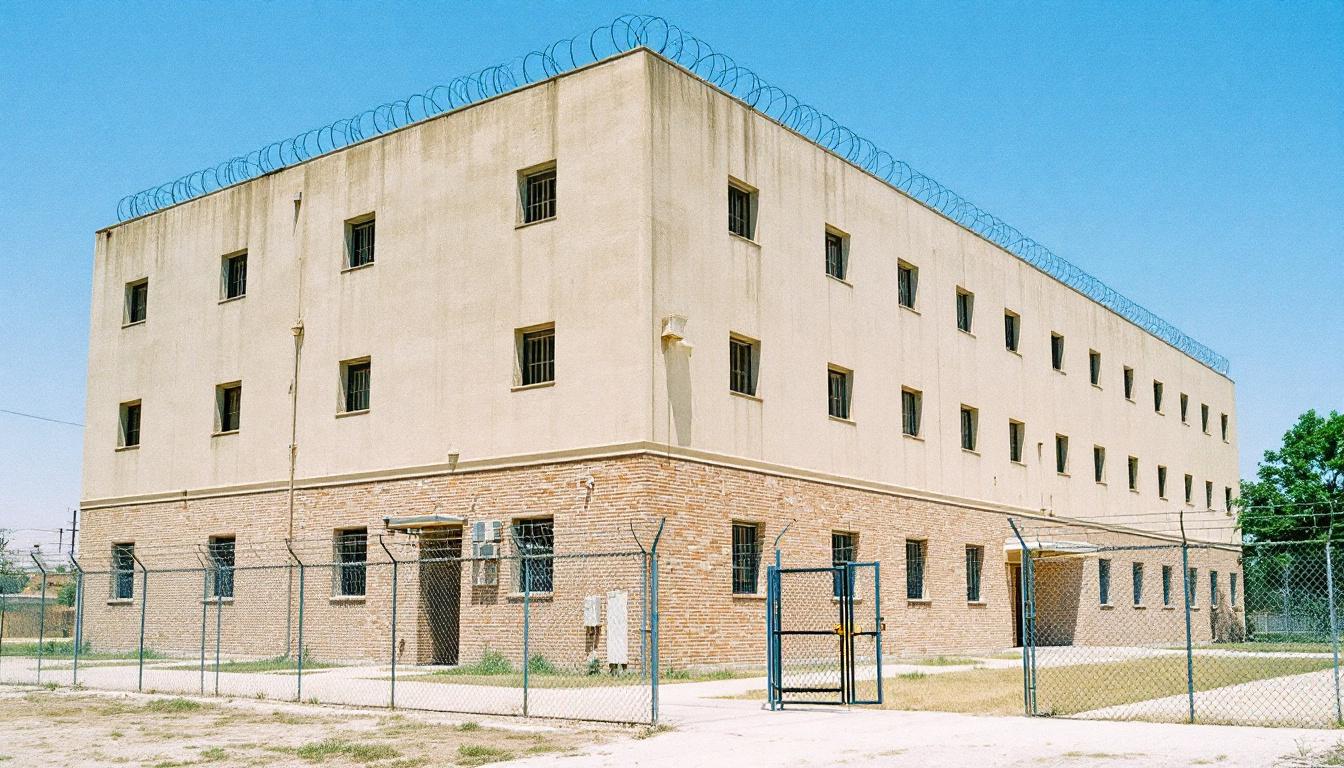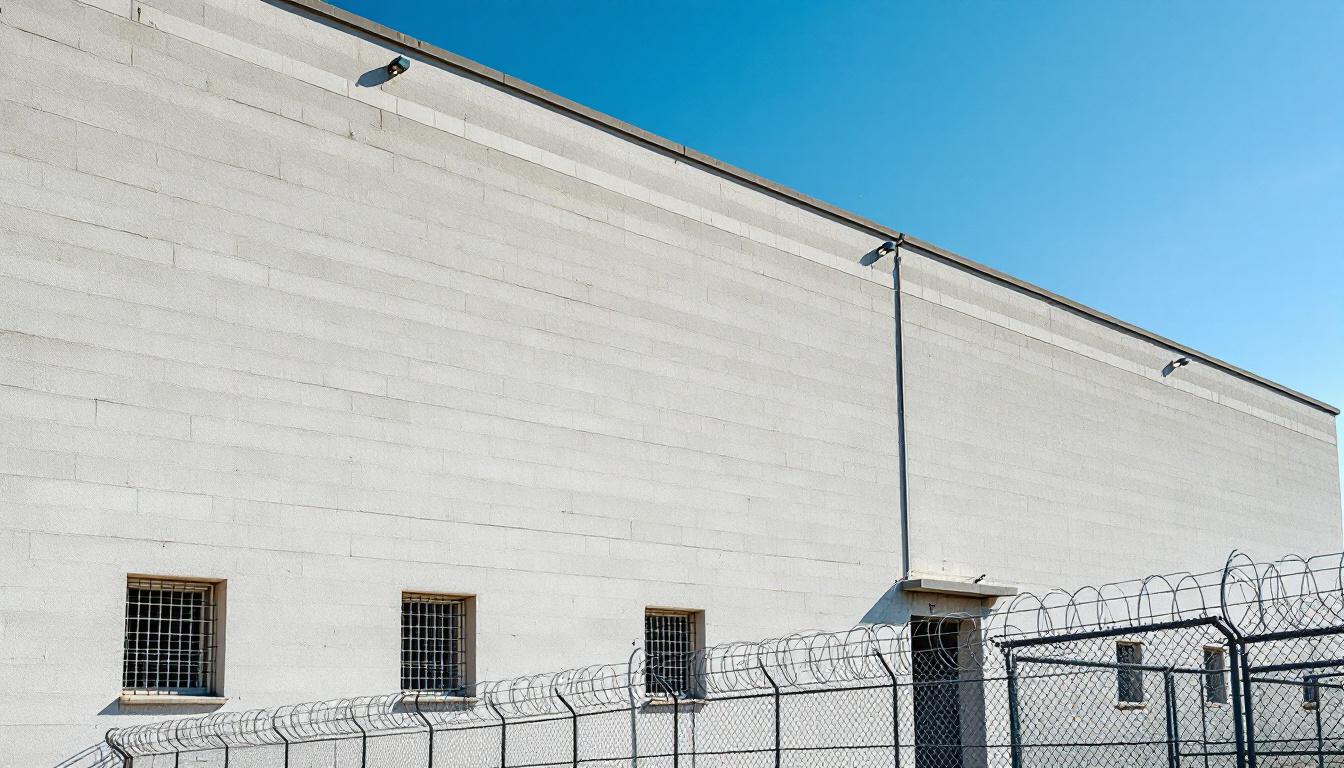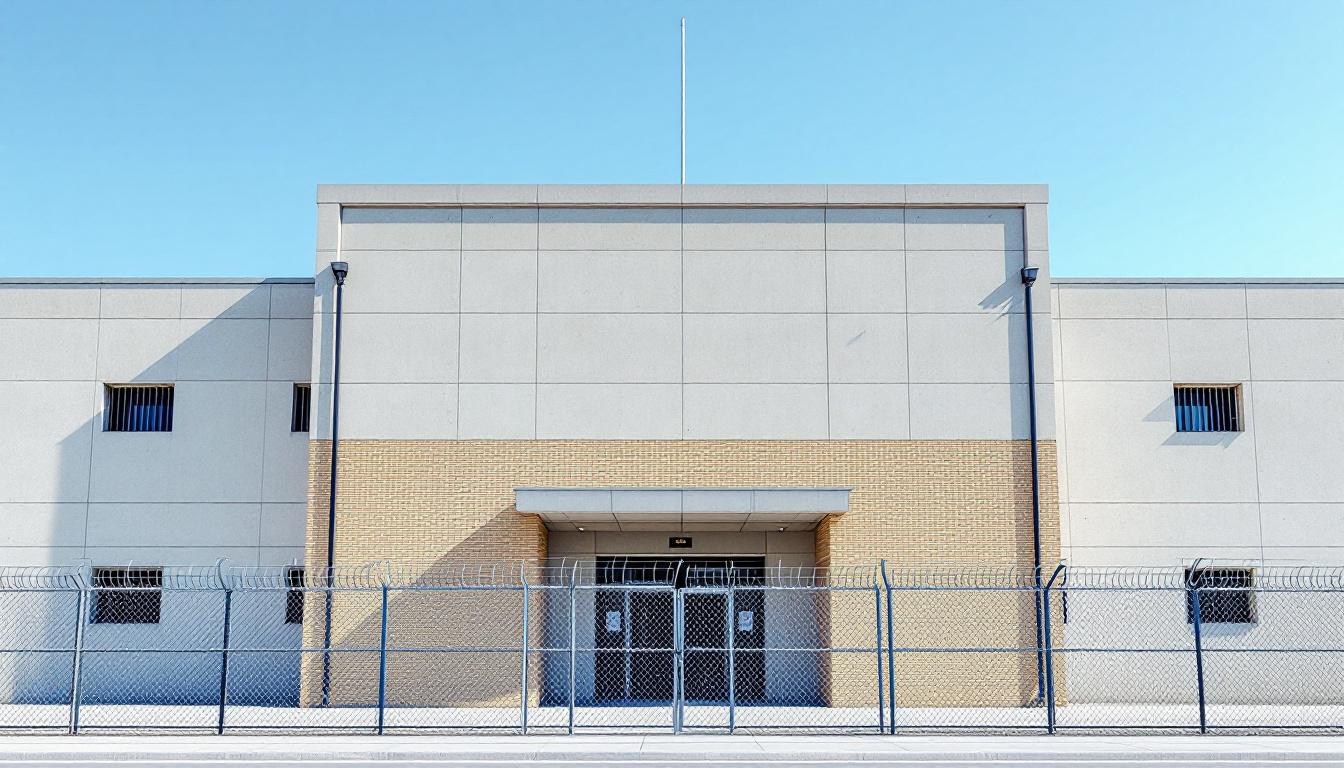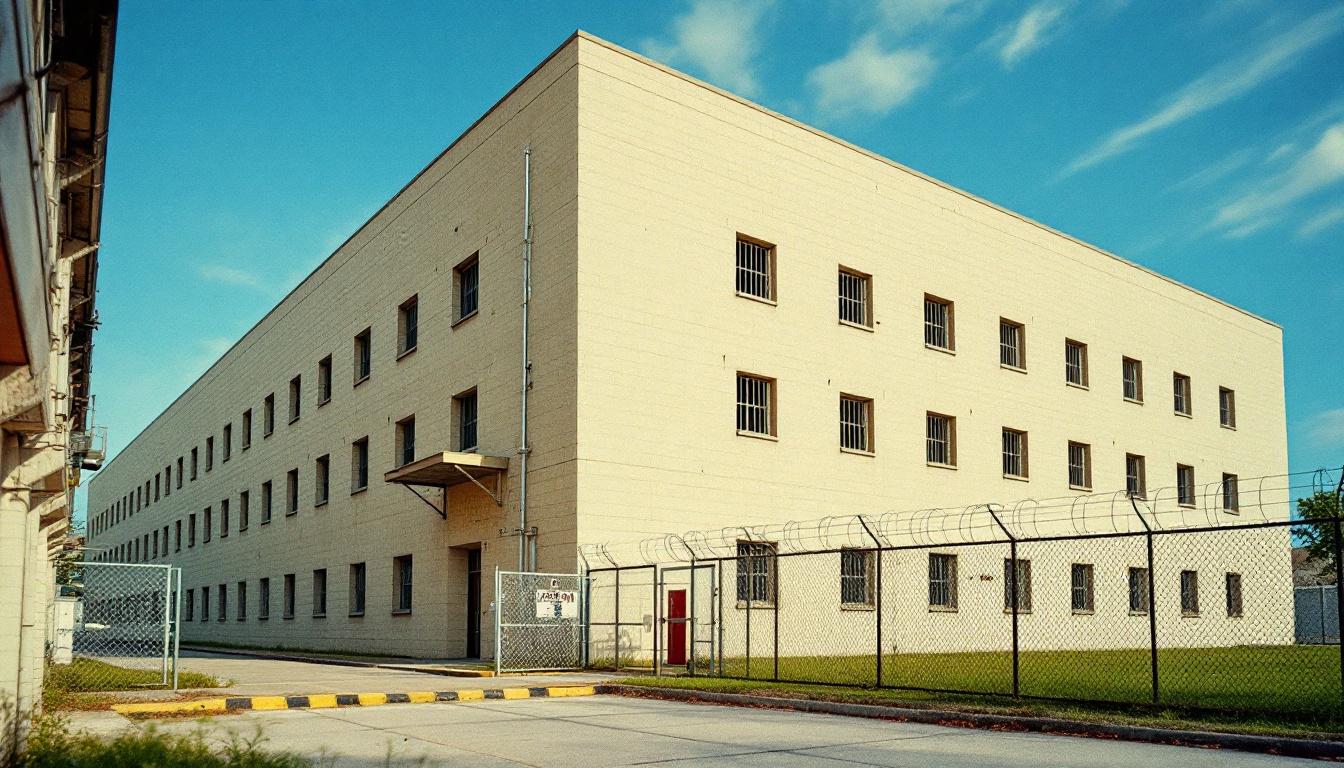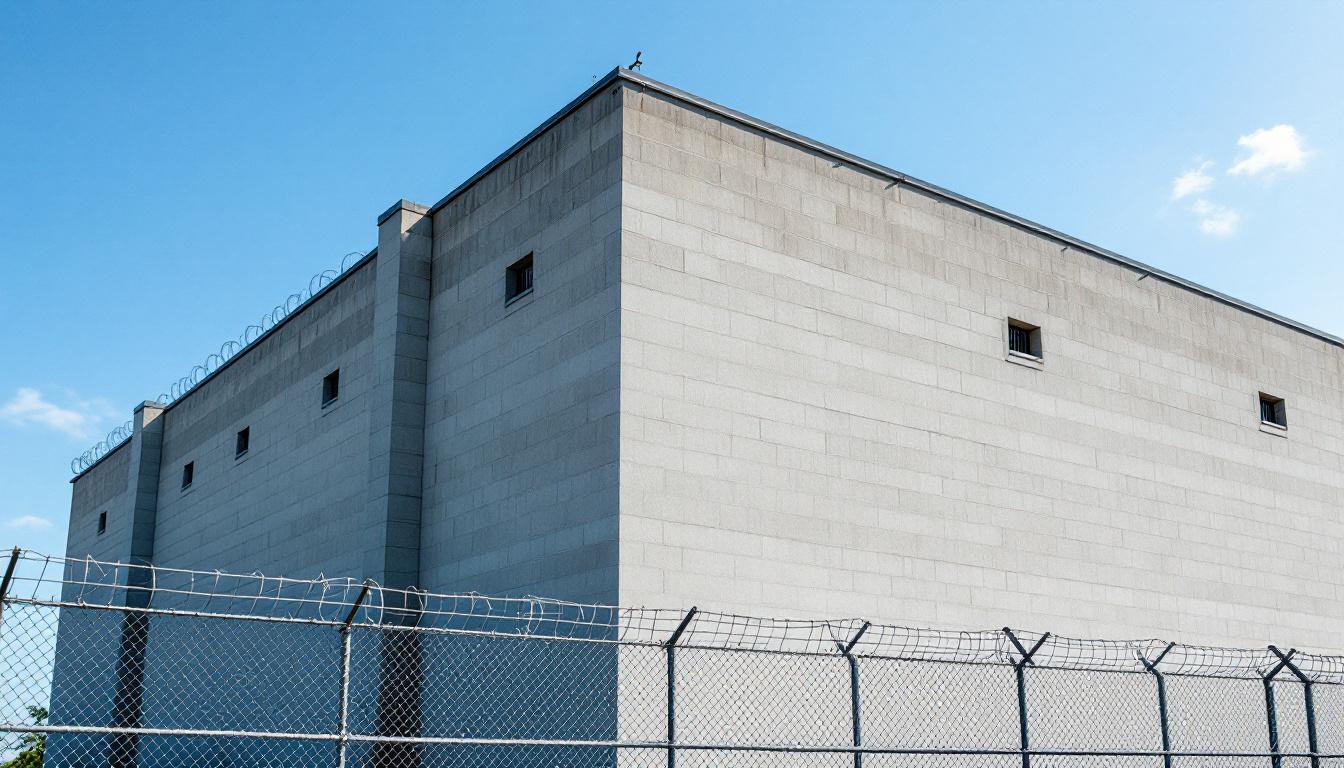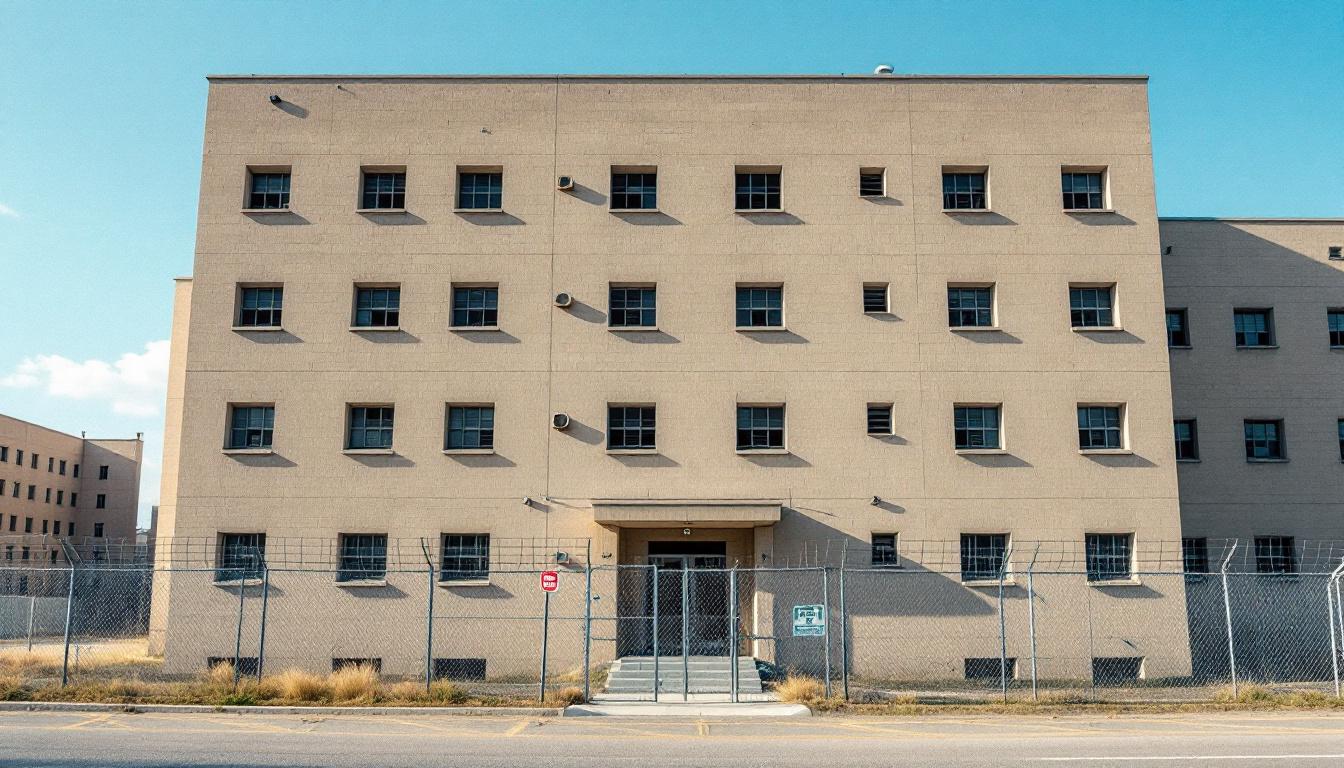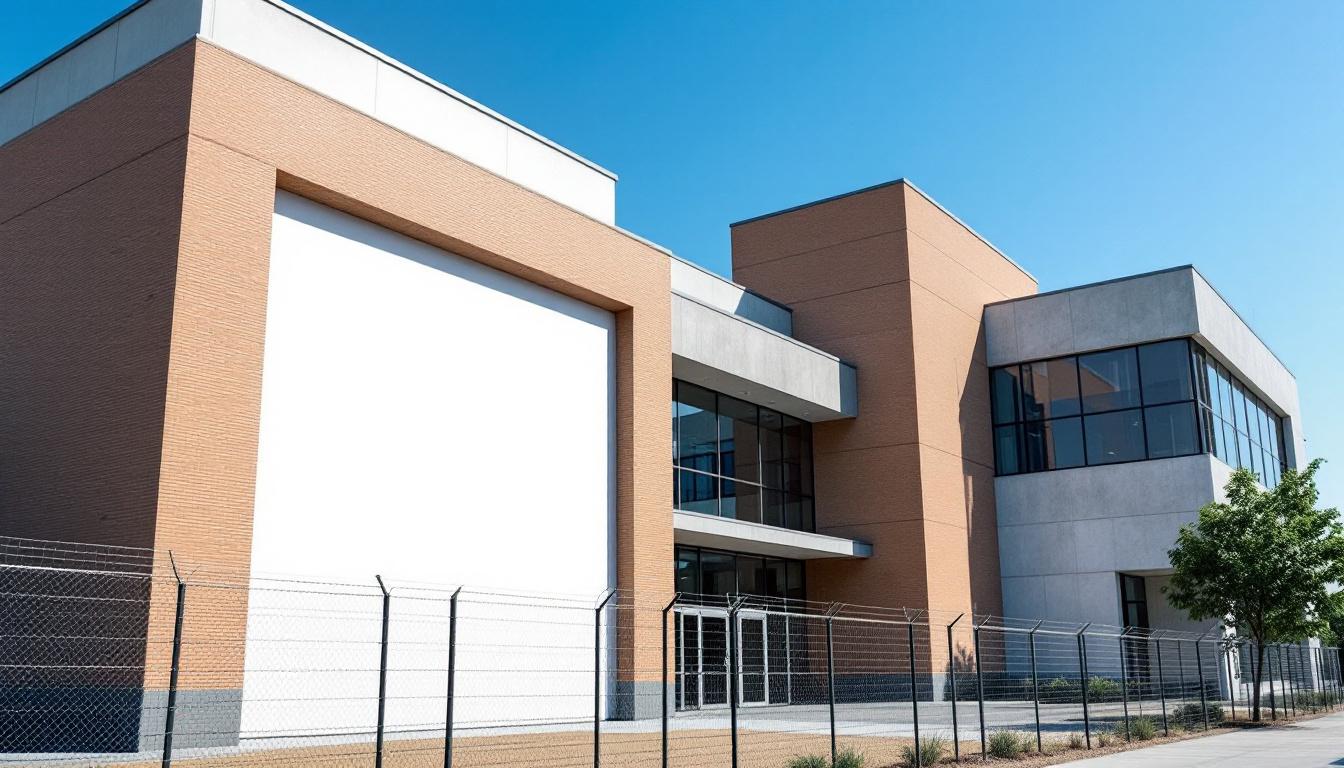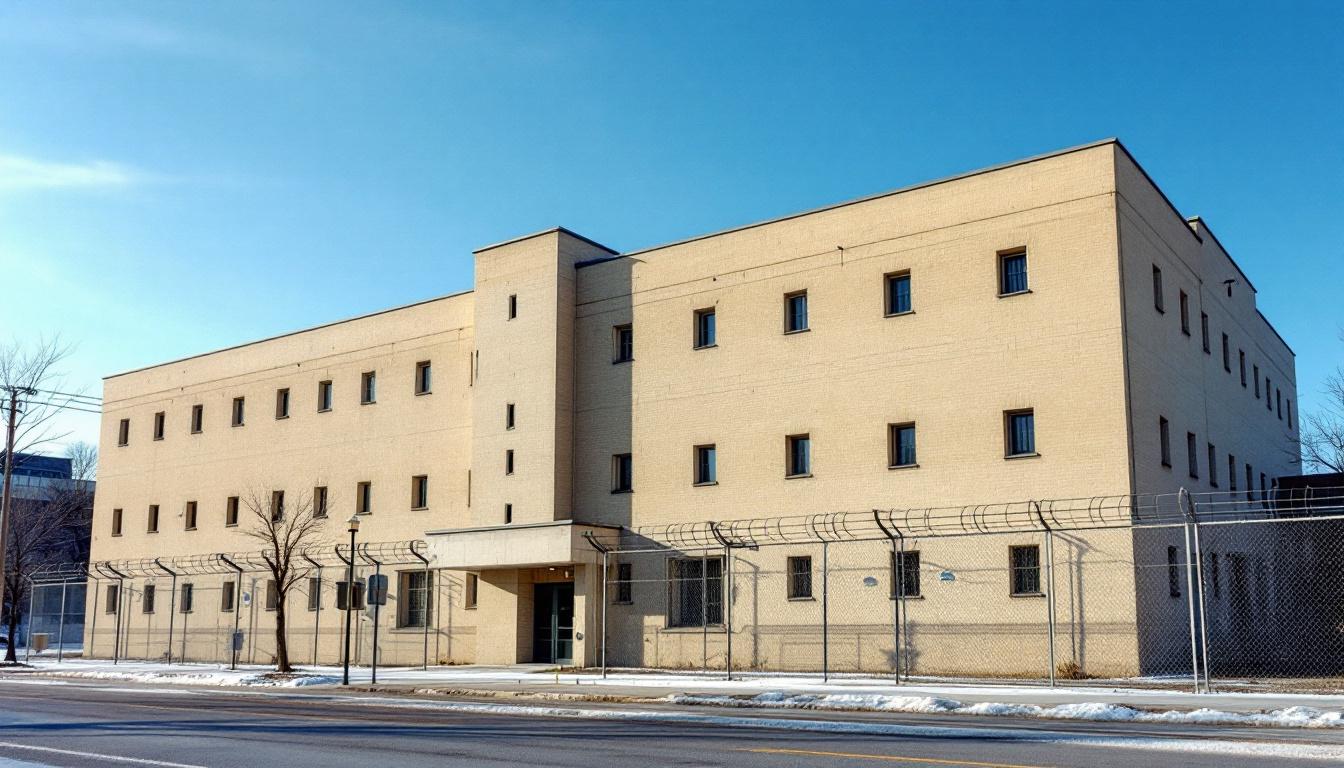
Quick Navigation
How to contact an inmate at Mobile County Metro Jail
This comprehensive guide will walk you through how to connect with an inmate at Mobile County Metro Jail. Follow the steps below to find an inmate and send letters and photos:
- Search for the inmate using our search tool below
- Create your account or log in to Penmate
- Write your message (up to 6,000 characters)
- Send instantly - inmates receive printed copies daily
Find an Inmate
Search for an inmate to start communicating today
Tip: You can search by first name, last name, or inmate ID number
To contact a person at Mobile County Metro Jail start by searching for the person on the official facility website. Perform a search by following these steps:
- Step 1: Enter their first name and last name into the search form and click "Search"
- Step 2: Locate their inmate record
- Step 3: Write down their Inmate ID and any housing information provided
Important! Be sure to enter the person's full name. Nicknames should not be used.
How to Send Messages to Inmates

You can use your phone or computer to send emails, letters, and photos to an inmate. Messages are sent electronically to inmate tablets or kiosks at the facility. If you would like to send a message, start by searching for an inmate at Mobile County Metro Jail.
Sending Photos and Postcards

A great way to send love and support to a loved one at Mobile County Metro Jail is to send photos and postcards. It only takes a few minutes to send photos from your phone and it makes a huge difference. You can also mail postcards with words of support and inspiration, or design your own postcard for special moments like birthdays and holidays.
Important! Be sure not to send any explicit photos or they may not be approved by the facility. You can also use a photo printing app like Penmate to make sure your photos are printed at the correct size (4x6 or 3x5) and are mailed according to the rules and regulations of Mobile County Metro Jail.
Frequently asked questions about Mobile County Metro Jail
-
How long does it take to deliver a message?
If you're sending an email message your letter is usually delivered within 24-48 hours. For messages sent via mail you should expect delivery within 3-7 days. All messages will need be approved by Mobile County Metro Jail.
-
How much does it cost to send a message to Mobile County Metro Jail?
You can send a message free using your phone or mail a message via USPS for the price of a $0.60 stamp and envelope. You can also purchase credits or e-stamps from services starting at $1.99.
-
What services can I use to contact an inmate at Mobile County Metro Jail?
Penmate
You can use Penmate to send letters and photos to an inmate from your phone. It's an easy way to stay in touch during your loved one's incarceration. Use the inmate locator to find an inmate's location and contact information, then you can send messages within a few minutes.
Securus messaging
Securus may be another option for communicating with an inmate at Mobile County Metro Jail. You can create a friends and family account and purchase credits to send messages. All messages will be reviewed and must be approved by the facility.
JPay
Some county jails and state prisons may support sending messages with JPay. You must register an account with the system, find your loved one, and purchase stamps to send messages. For some locations you can also attach photos.
Smart Jail Mail
You may also check if Smart Jail Mail is available at Mobile County Metro Jail. Smart Jail Mail is operated by Smart Communications and has contracted with some state and county jails. After purchasing credits, your messages and photos are sent to the facility, printed out, and then handed out to your loved one.
-
What is the mailing address of Mobile County Metro Jail?
Mailing address:
Mobile County Metro Jail
450 St Emanuel St
Mobile, AL 36603
Phone: (251) 574-6412Business hours:
- Monday: 4:20 AM – 4:20 PM
- Tuesday: 4:20 AM – 4:20 PM
- Wednesday: 4:20 AM – 4:20 PM
- Thursday: 4:20 AM – 4:20 PM
- Friday: 4:20 AM – 4:20 PM
- Saturday: 4:20 AM – 4:20 PM
- Sunday: 4:20 AM – 4:20 PM
-
What are the visiting hours at Mobile County Metro Jail?
Visiting hours at Mobile County Metro Jail vary by housing unit and security level. Generally, visits are scheduled on weekends and holidays, with some facilities offering weekday visits. Contact the facility directly at (251) 574-6412 or check their website for the current visiting schedule. Visits typically last 30-60 minutes and must be scheduled in advance.
-
What items are prohibited when sending mail to Mobile County Metro Jail?
Prohibited items typically include: cash, personal checks, stamps, stickers, glitter, glue, tape, staples, paperclips, polaroid photos, musical or blank greeting cards, hardcover books, magazines with staples, and any items containing metal or electronics. Only send letters on plain white paper with blue or black ink. Photos must be printed on regular photo paper (no Polaroids). Always check with Mobile County Metro Jail for their specific mail policies.
-
How do I send money to an inmate at Mobile County Metro Jail?
You can send money to an inmate at Mobile County Metro Jail through several methods: 1) Online using JPay, Access Corrections, or the facility's approved vendor, 2) Money orders mailed directly to the facility with the inmate's name and ID number, 3) Kiosks located in the facility lobby, or 4) Over the phone using a credit or debit card. Fees vary by method, typically ranging from $2.95 to $11.95 per transaction.
-
Can I schedule a video visit with an inmate at Mobile County Metro Jail?
Many facilities now offer video visitation as an alternative to in-person visits. At Mobile County Metro Jail, video visits may be available through services like Penmate, Securus Video Connect, GTL, or ICSolutions. Video visits typically cost $10-20 for 20-30 minutes and must be scheduled in advance. You'll need a computer or smartphone with a camera and reliable internet connection. Contact the facility for their specific video visitation policies and approved vendors.
-
What identification do I need to visit an inmate at Mobile County Metro Jail?
All visitors must present valid government-issued photo identification such as a driver's license, state ID, passport, or military ID. Minors must be accompanied by a parent or legal guardian who can provide the minor's birth certificate. Some facilities require visitors to be on the inmate's approved visitation list, which may require a background check. Contact Mobile County Metro Jail for specific ID requirements and visitor approval procedures.
-
How can I find out an inmate's release date?
To find an inmate's release date at Mobile County Metro Jail, you can: 1) Use the online inmate search tool if available, 2) Call the facility's records department, 3) Contact the inmate's case manager or counselor, or 4) Have the inmate provide this information during a call or visit. For privacy reasons, some facilities only release this information to immediate family members.
Facility Overview
Contact Information
Mobile County Metro Jail450 St Emanuel St
Mobile, AL 36603
Phone: (251) 574-6412
Official Website

About Mobile County Metro Jail
Serving the community's safety needs while maintaining secure custody of individuals awaiting trial or serving shorter sentences, Mobile Metro Jail, AL operates as a vital component of Alabama's local correctional infrastructure. Located in Mobile, this county jail facility typically houses pre-trial detainees and those serving misdemeanor sentences, contributing to the broader public safety framework that supports both the Gulf Coast community and the surrounding region. The facility generally focuses on maintaining secure custody while providing essential services to those incarcerated, recognizing that many individuals may eventually return to the community.
Within Alabama's correctional system, this AL correctional facility typically offers various programs designed to address the diverse needs of its population. Those incarcerated services may include basic educational opportunities, substance abuse counseling, and vocational training programs that help prepare individuals for successful community reintegration. The facility often emphasizes maintaining family connections through visitation programs and communication services, understanding that strong community ties can support positive outcomes. Additionally, the jail typically provides medical care, mental health services, and religious programming to address the comprehensive needs of individuals in custody.
The facility's approach to rehabilitation generally balances security requirements with programming opportunities, reflecting modern correctional practices that recognize the importance of addressing underlying issues that may contribute to criminal behavior. Through coordination with local courts, social services, and community organizations, Mobile Metro Jail typically works to support both public safety objectives and individual rehabilitation goals, serving as a bridge between the justice system and the Mobile community.
Programs & Services
Personal growth begins behind bars through structured opportunities that help those incarcerated build skills for successful reentry. Mobile Metro Jail typically focuses on creating a secure environment where participants can access meaningful offerings designed to address both immediate needs and long-term goals. The facility's approach emphasizes safety and structure while providing pathways for personal development and positive change.
Education programs often serve as the foundation for transformation, giving those incarcerated chances to earn their GED or pursue basic literacy skills. These educational offerings may furnish participants with essential academic tools they need for future employment and personal advancement. The structured learning environment typically provides a productive use of time while building confidence and opening doors to additional opportunities.
Support services play a crucial role in preparing individuals for successful community reintegration. Work release programs may offer participants the chance to maintain employment connections and develop job skills while serving their sentences. Also available are faith-based programs that provide spiritual guidance and community support. Family reunification services typically help strengthen important relationships that support long-term success. Stress management offerings often include techniques for coping with daily challenges and building emotional resilience, creating a foundation for positive decision-making both during incarceration and after release.
Daily Life & Visitation
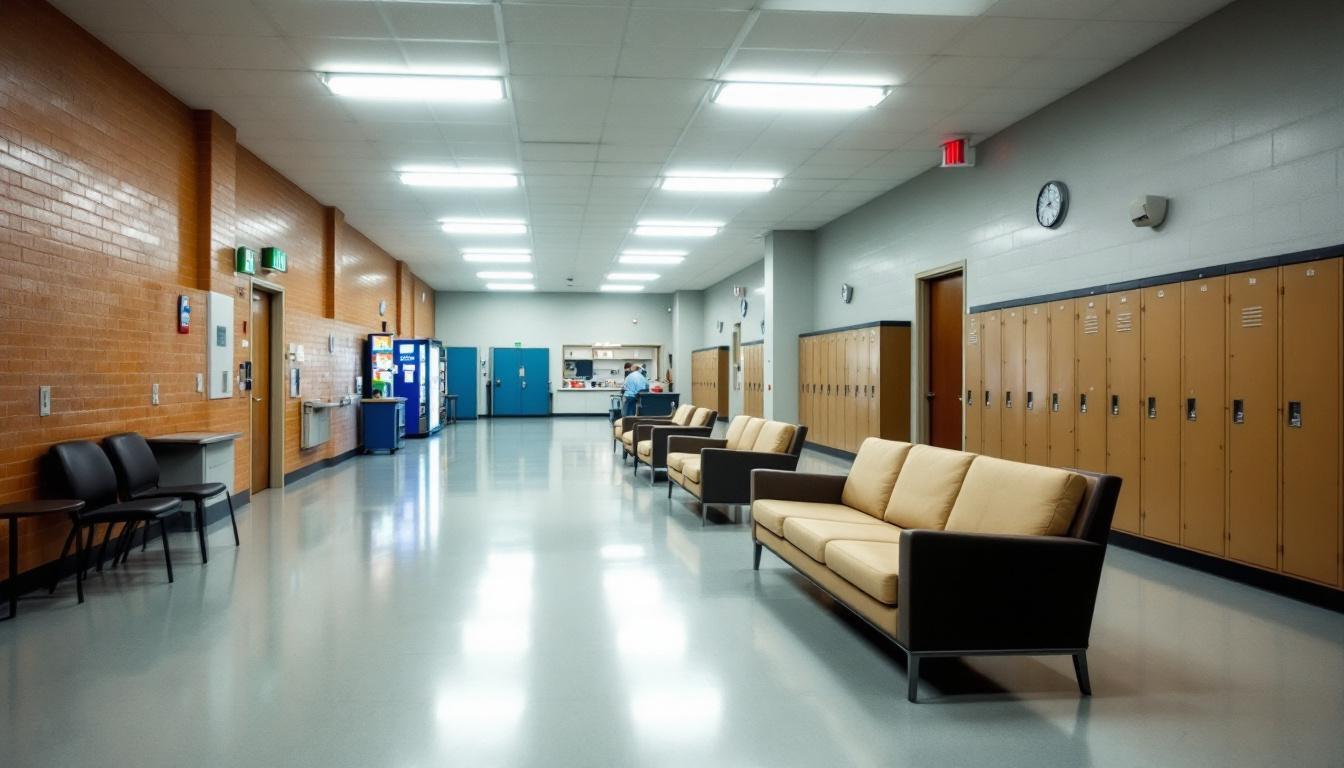
Staying connected with family and friends becomes a central focus for those incarcerated at Mobile Metro Jail, as maintaining these relationships often provides crucial emotional support during their time at the facility. Daily routines now revolve around structured schedules that regularly include meal times, recreation periods, and opportunities for communication with the outside world. Those incarcerated typically wake early and follow established patterns that furnish stability throughout their stay.
Housing arrangements generally place individuals in dormitory-style units or smaller cells, depending on classification levels and available space. Living conditions typically include basic furnishings and shared common areas where social interactions naturally develop among residents. Also, meals are usually served in designated dining areas at scheduled times, creating regular opportunities for community interaction and conversation among those housed together.
Programming schedules may offer various activities including educational classes, religious services, and recreational opportunities that help maintain mental and physical well-being. However, visitation policies and phone privileges typically provide the most meaningful connections to family members and support networks outside the facility. Those incarcerated can generally access commissary services to purchase personal items and may participate in work assignments that furnish structure and purpose to their daily routine. Also, these programs often help individuals prepare for eventual reintegration into their communities while maintaining important family bonds during their incarceration.
Ready to Connect?
Start communicating with your loved one today
Search for an Inmate

